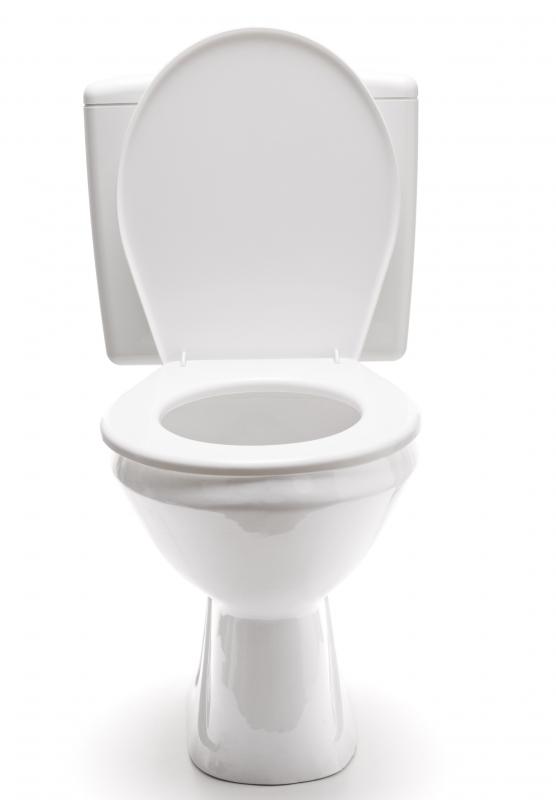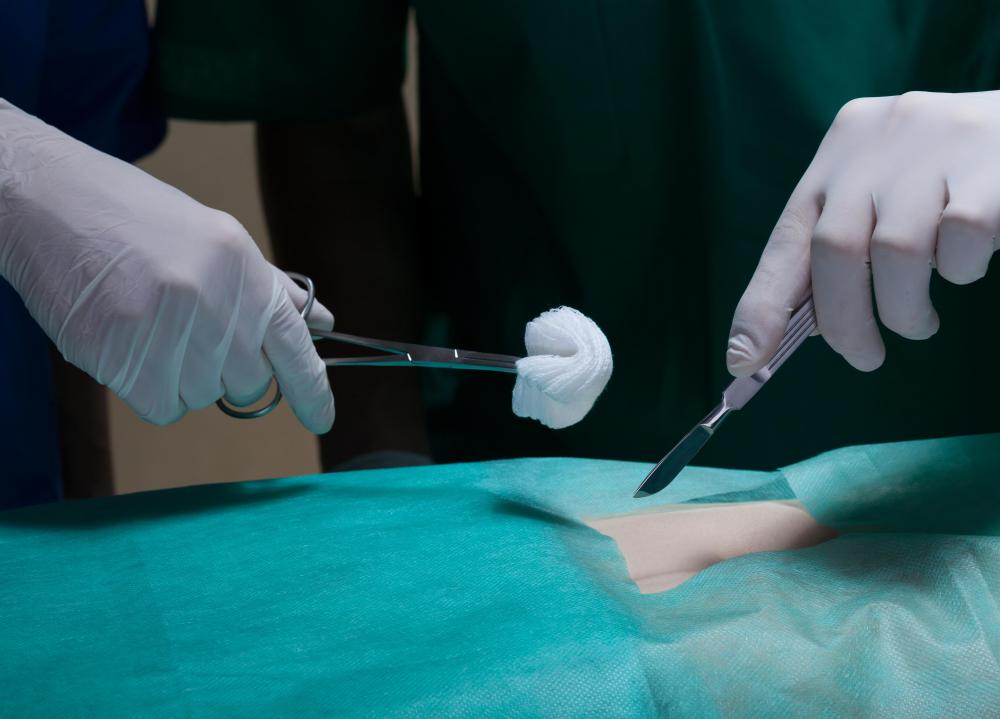At TheHealthBoard, we're committed to delivering accurate, trustworthy information. Our expert-authored content is rigorously fact-checked and sourced from credible authorities. Discover how we uphold the highest standards in providing you with reliable knowledge.
What is a Rectal Hemorrhage?
Rectal hemorrhage is the technical term for any kind of bleeding in the rectum. It is usually caused by an actual wound somewhere in the anus, although in very rare cases, the blood can be coming from somewhere deeper inside the body. Many things can cause bleeding sores in the rectum, including everything from hemorrhoids to certain kinds of cancer. Treatment will generally vary depending on the cause. When red-colored blood is coming from the stomach or somewhere else higher in the digestive system, it can potentially be deadly because it means that the bleeding is very severe.
Most rectal bleeding comes from hemorrhoids. These are swollen veins inside the rectum, and it’s very common for them to be slightly punctured, especially while passing stool. When this happens, people may notice red blood in the toilet after a bowel movement.

Another common disorder that leads to rectal hemorrhage is constipation. When people become constipated, it is common for their bowel movements to harden. Dry, hardened stool can easily injure the rectum, leading to anal fissures that ultimately result in rectal hemorrhage.
One of the more dangerous causes of rectal hemorrhage involves polyps. These are growths in the anus that can sometimes lead to cancer. They are similar to hemorrhoids in the sense that they are prone to being punctured during bowel movements, which can cause them to bleed.

Most causes of rectal hemorrhage aren’t actually that serious, but it isn’t possible to tell if the blood is coming from something relatively benign like hemorrhoids or something potentially more dangerous like polyps or stomach bleeding. For this reason, doctors generally recommend that patients treat any rectal bleeding as a serious symptom and get an evaluation from a medical professional. This is especially true if it’s the person’s first rectal bleeding incident or if the individual hasn’t already been diagnosed with something that’s known to cause rectal hemorrhage. When diagnosing a case of rectal bleeding, doctors will often ask numerous questions, and they may perform an examination of the rectum.

Treatment of rectal hemorrhage is based entirely on the cause of each particular case. When the bleeding is coming from hemorrhoids, there are several over-the-counter medications that can be helpful, and doctors have procedures to deal with cases where those remedies aren’t effective. Dealing with constipation will normally involve eating a diet with more fiber and drinking a higher volume of liquid. Polyps and other potentially serious conditions may require very specific treatments, which might often include surgical solutions or prescription medications.
AS FEATURED ON:
AS FEATURED ON:



















Discussion Comments
For a long time, I've been having rectorragy. Sometimes just blood and it makes me weak, for 1 day to a few days, with no stool, no pain. One doctor said I had polyps, another fissure, and other hemorrhoids.
One time they wanted me to stay in the hospital for one week to have different tests, but nothing.
I could have bleeding for one day or for one week. It stops and starts on its own.
Another time I farted and felt something wet, and half my underwear was full of blood The next day, nothing. The doctors checked for anemia and lead, and everything was normal.
Last December, I broke my wrist and knee cap. They kept me for a week. I was just lying in bed and one morning my butt and all the sheets were red. They got me scared and gave me different kinds of tests, but nothing, and the next day everything was gone.
Anybody would know what it could be? I'm at the end of my rope, and no solution up ahead.
Post your comments